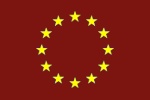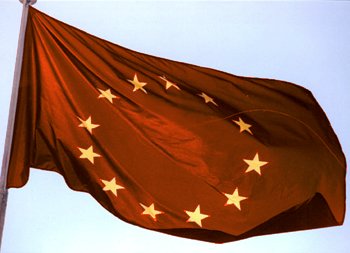Ferrier
Administrateur


 Nombre de messages : 18530 Nombre de messages : 18530
Localisation : Europe-Nation
 |  Sujet: PSR et mir Sujet: PSR et mir  Jeu 22 Déc - 14:58 Jeu 22 Déc - 14:58 | |
| - Citation :
- The Russian word mir (мир), besides its direct meanings of peace and world, had some other meanings related to social organization in Imperial Russia.
The first meaning was to denote the secular part of the society organization, as opposed to church organization. The second meaning was used in Imperial Russia to denote local self-government of peasant communities, called obshchinas. - Citation :

The Socialist-Revolutionary Party (the PSR, the SRs, or Esers; Партия социалистов-революционеров (ПСР), эсеры in Russian) was a Russian political party active in the early 20th century.
The party was established in 1901, bringing together numerous local socialist-revolutionary groups which had been established in the 1890s, most notably Workers' Party of Political Liberation of Russia created by Catherine Breshkovsky and Gregory Gershuni in 1899. Victor Chernov, editor of the first party organ, Revolutsionaia Rossiia (Revolutionary Russia), emerged as the primary party theorist. Later party periodicals included Znamia Truda (Labor's Banner), Delo Naroda (People's Cause), and Volia Naroda (People's Will). Gershuni, Breshkovskaia, A. A. Argunov, N. D. Avksentiev, M. R. Gots, M. A. Natanson, N. I. Rakitnikov (Maksimov), N. S. Rusanov, I. A. Rubanovich, and Boris Savinkov were among the party's leaders.
The programme of the PSR was in the democratic socialist mold and garnered much support amongst Russia's rural peasantry who in particular supported their programme of land-socialisation as opposed to the Bolshevik programme of land-nationalisation. Their policy platform differed from that of the Social Democrats---both Bolshevik and Menshevik---in that it was not Marxist; the SRs believed that the peasantry, not the industrial proletariat, would be the revolutionary class in Russia.
The PSR grew directly out of the narodnik or Russian populist movement. With the economic spurt in Russia of the 1890s, they attempted to broaden their basis of appeal in order to attract the rapidly growing urban workforce to their traditionally peasant orientated programme. The intention was to widen the concept of the 'people' so that it encompassed all those elements in society that had reason for wishing to see the destruction of the Tsarist system.
The PSR played an active role in the Russian Revolution of 1905, and in the Moscow and St. Petersburg Soviets. Although the party officially boycotted the first State Duma in 1906, 34 SRs were elected, while 37 were elected to the second Duma in 1907; the party boycotted both the third and fourth Dumas in 1907-1917.
Terrorism, both political and agrarian, was central to the PSR's strategy for revolution. The party's terrorist wing, the "SR Combat Organization", was led by Gershuni and operated separately from the party so as not to jeopardize its legal actions. The SRCO was responsible for the assassinations of two Ministers of the Interior, Dmitry Sipyagin and V. K. von Plehve, the Grand Prince Sergei Aleksandrovich, and N. M. Bogdanovich, the Governor of Ufa. Later betrayed by his deputy, Yevno Azef, who was an agent of the Okhranka secret police, Gershuni was arrested and tried for terrorism. Azef became the new leader of the SRCO, and continued working for both the SRCO and the Okhranka, simultaneously orchestrating terrorist acts and betraying his comrades. His unmasking in late 1908-early 1909 shook the party deeply.
The Russian Revolution of February, 1917, made it possible for the SRs to play a greater political role, with one of their members Alexander Kerensky joining the liberal Provisional Government in March 1917, and eventually becoming the head of a coalition socialist-liberal government in July 1917.
In mid-late 1917 the SRs split between those who supported the Provisional Government and those who supported the Bolsheviks and favoured a communist revolution. Those who supported the Bolsheviks became known as Left Socialist-Revolutionaries (Left SRs) and in effect split from the main party, which retained the name "SR" [1]. The primary issues motivating the split were the war and the redistribution of land. The Left SRs, led by Maria Spiridonova, believed that Russia should withdraw immediately from World War I, and they were frustrated that the Provisional Government wanted to postpone addressing the land question until after the convocation of the Russian Constituent Assembly instead of immediately confiscating the land from the landowners and redistributing it to the peasants.
At the Second Congress of Soviets on October 25, 1917, when the Bolsheviks proclaimed the deposition of the Provisional government, the split within the SR party became final. The Left SR stayed at the Congress and were elected to the permanent VTSiK executive (although at first they refused to join the Bolshevik government) while the mainstream SR and their Menshevik allies walked out of the Congress. In late November, the Left SR joined the Bolshevik government.
The SRs faded after the Bolshevik October Revolution, although in the election to the Constituent Assembly they proved to be the most popular party across the country, gaining 57% of the popular vote as opposed to the Bolsheviks 25%. However, the Bolsheviks disbanded the Assembly and thereafter the SRs became of less political significance. The Left SR party became the coalition partner of the Bolsheviks in the Soviet Government, although they resigned their positions after the Treaty of Brest-Litovsk was signed. A few Left-SRs like Yakov Blyumkin joined the Communist Party.
The PSR and other anti-Bolshevik parties were banned in 1918. SR leaders and party members were arrested, imprisoned, and exiled, and some were executed; in response, some SRs turned once again to terrorism. A former SR, Fanya Kaplan, tried to assassinate Lenin in response to proscription of SR members on August 30, 1918. Many SRs fought for the Whites and Greens in the Russian Civil War alongside Mensheviks and other banned moderate socialist elements. The largest Tambov Rebellion against Bolsheviks was led by an SR Alexander Antonov. | |
|
